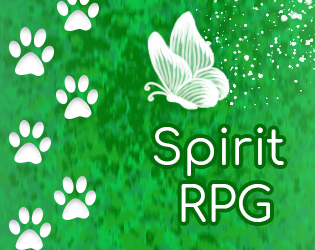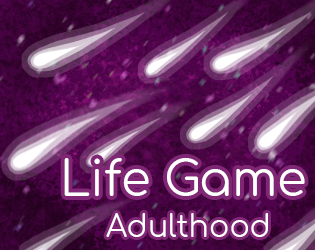It’s been a couple of years since we first released Dialogue: A Writer’s Story, and I wanted to take this opportunity to view it with a lens we don’t usually use. Minor spoilers for the game ahead, so feel free to go play it right now =)
When talking about the game, we often highlight how it is an everyday sort of story. It is about exploring Lucille’s life as a writer and her relationships with others. The stakes are low and your choices do not create wide sweeping changes. All of this is true, but there is also something else, something complementary, beneath all that. Dialogue determinedly avoids clean conflict resolution, and this can feel ‘off’ to a lot of people.
Now, ‘conflict’ is a pretty general term which gets thrown around when analysing stories all the time. In some ways, there’s practically no conflict at all in the game – the main character sets out to write her novel, talks to people about the novel, and then finishes writing the novel. Even if Lucille’s life is not overly dramatic, she still faces certain anxieties, and what you define specifically as ‘conflict’ in Dialogue may vary from person to person.
However, while the difficulties of the process, both mundane and creative, are highlighted during conversation, there is little in the way of confronting these difficulties to reach some sort of resolution. Even when Lucille’s difficulties are resolved, this often happens off-screen (for example, Lucille makes a significant creative choice about the novel). Instead of building up to or relaxing from that resolution, the subsequent conversations often explore how that resolution is neither ‘good’ nor ‘bad’, and that the difficulty itself may be ongoing or cyclical.
Discussions about writing with Lucille’s family often involve them annoyingly playing devil’s advocate (no matter how well-meaning they may be). Chats with Lucille’s novel characters often take the form of her own characters telling her how to write, sometimes laying out (in painful detail) the many creative choices which have no end of considerations behind them. There are even significant aspects of the game which question the player and their choices in an analogous way to Lucille (but you will have to play the game to learn more about that).
So, what does the lack of conflict resolution in Dialogue mean? In remaining consistent with the game, it is probably better to leave that question… unresolved. Personally, I have thoughts about the relationship between conflicts without simple resolution and anxiety, but that is certainly not the only direction to take it. This pervasive lack of conclusion might go against the grain for some people, but we hope it communicates feelings that are worth exploring while also being different enough from the kinds of stories you’re used to seeing in games.
If all this sounds interesting to you, maybe you should head on over to the game and check it out! You can find it at the links below. If you’ve already played Dialogue, I’d love to hear your feelings about the lack of conflict resolution in the game, whether you like it or not, and whether it represents something different to you. Leave a comment or tweet at us and we can have a chat!


Add your comment